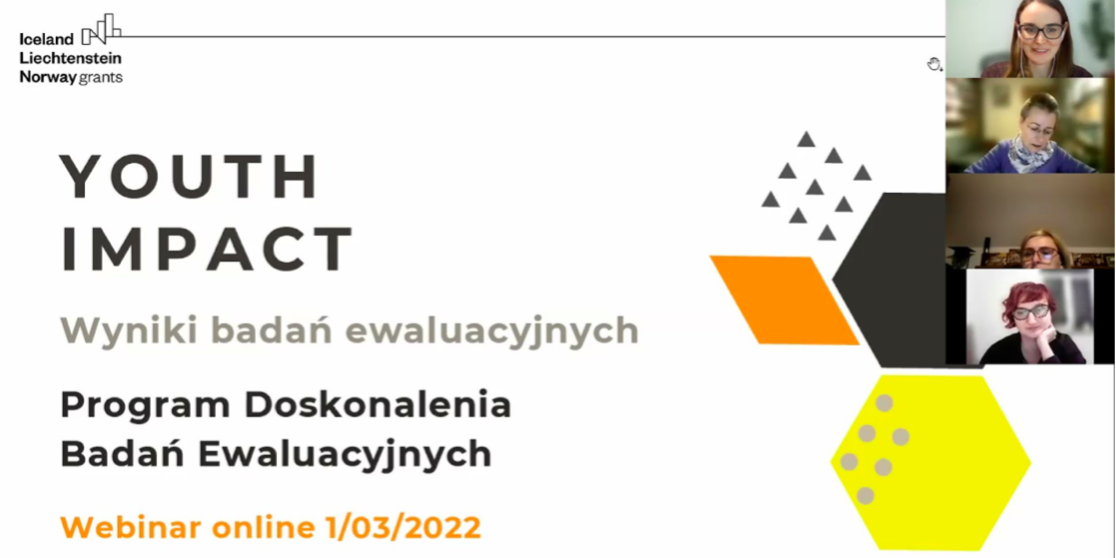At the beginning of March, another “evaluation roundtable” was organized as part of the Youth Impact project in Poland. During the meeting on the ZOOM platform on Tuesday, March 1 at 6:00 p.m., it was possible to listen to and discuss the results of the evaluation studies carried out by the participants of the Evaluation Research Excellence Programme. The event was held under the patronage of the Polish Evaluation Society.
The program is addressed to young evaluators – people who wanted to evaluate a project supporting youth employment or entrepreneurship, but needed support in doing so. During the cooperation, researchers were provided with mentoring support by Monika Bartosiewicz-Niziołek, an expert of the Youth Impact project and the president of PTE.
During the webinar, the results of their evaluation research were presented by Bogusław Kosel and Maja Musialik (project “Joint Employment Initiative of Youth to Meet the Needs of the Cross-Border Labor Market”) and Izabela Gawęcka (project “Active for 100 Years”). In addition to presenting the subject and scope of evaluation, research questions, evaluation criteria, research methodology, detailed results and conclusions, the speakers also proposed a number of recommendations for planning projects supporting professional activity of young people and designing their evaluation. Among the tips were such recommendations:
· Coordinators or leaders of target groups should be consulted on training delivery schedules to avoid overburdening participants with duties (e.g. September, June)
· In projects aimed at young people, it is worth including anti-violence activities, supporting people experiencing abuses, but also all kinds of awareness and preventive activities, because young people often face violence
· It is worth considering the project method as one of the forms of conducting classes, engaging groups of participants in a joint action aimed at achieving a specific result, e.g. developing a business plan
· In evaluation, it is worth translating the project language into the language used by project participants, e.g. a “training trip for leaders” could have been remembered by them under a completely different name
· It is worth verifying the findings of the ongoing evaluation as part of ex-post evaluation (including deferred evaluation) in order to assess the effectiveness, utility and sustainability of the project.
You can find out more about the recordings from the “round table” on Youtube HERE. We invite you to watch it!
Written by Zofia Penza-Gabler (FRDL)







